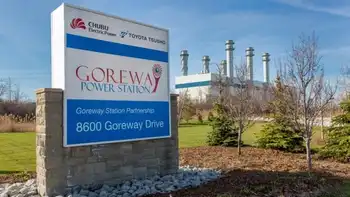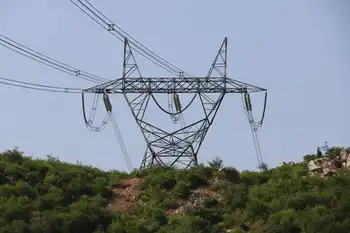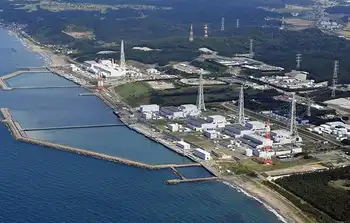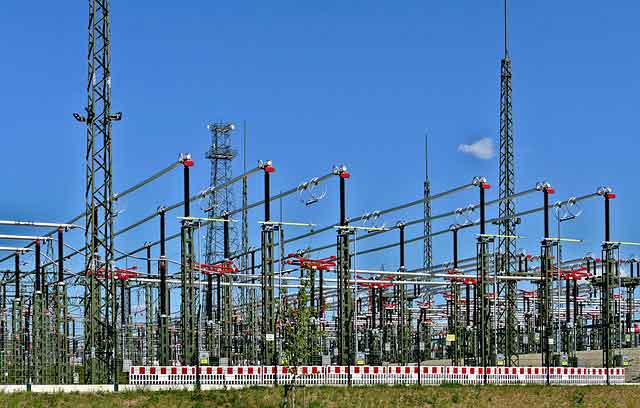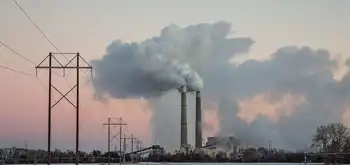Power rates could surge
By San Gabriel Valley Tribune
High Voltage Maintenance Training Online
Our customized live online or in‑person group training can be delivered to your staff at your location.

- Live Online
- 12 hours Instructor-led
- Group Training Available
Edison filed an application with the California Public Utilities Commission last fall to ask permission to raise electricity rates in 2009. The utility's initial rate forecast included an average increase of 17.5 percent for residential customers, according to a report issued by Edison in March.
Now, Edison expects that number could double. Average residential rates could increase "in excess of 30 percent" when rising fuel prices are taken into account, said Akbar Jazayeri, vice president of regulatory operations for Edison.
About 40 percent of Edison's residential customers would not be affected by the rate increases, according to an Edison spokesman. That number includes nearly 1 million Edison customers enrolled in the company's low-income rate discount program.
Edison's rates are broken into a five-tiered system based on the amount of energy a customer uses. Only customers within the three highest tiers - the heaviest users - would be affected by the proposed rate hikes, Jazayeri said.
The utility will submit the final component of its application to raise rates next month. Any rate increases must be approved in December by the Public Utilities Commission, which sets the three-year rates and can deny all or parts of Edison's request.
The average residential customer pays about $85 per month, according to Jazayeri. Should Edison's projected rate increases be approved by the PUC, that average bill could jump by more than $25 per month, Jazayeri said.
Mark Toney, executive director of The Utilities Reform Network, an energy watchdog group, called Edison's rate requests unreasonable.
"We think that the amount of money that Edison is requesting is totally out of line," said Toney. "The majority of it is built in just to increase their rate of return for their stockholders."
"A customer that stays within tier one and tier two will not see any rate increase at all," Jazayeri said.
Edison said the higher rates are needed because of volatile fuel prices, which have skyrocketed since the utility filed its initial request with the PUC.
"We are mentioning this to basically prepare the customers," Jazayeri said. "We are very concerned."
The cost of fuel is passed directly on to consumers, Jazayeri said.
"This is not anything that we make a penny on," he said.
Before the PUC determines the rate changes, the agency holds community hearings open to public comment. No such meeting has yet taken place in the San Gabriel Valley or Whittier area.
Officials from several San Gabriel Valley cities, including Arcadia, Duarte, Whittier and West Covina, said that their cities have not yet taken any formal position relating to Edison's proposed rate hikes.
"Obviously its ominous, both for the consumer and for public agencies that depend on a lot of electricity," said Don Penman, city manager for Arcadia.
Whittier City Manager Steve Helvey agreed.
"It strikes me as a pretty dramatic increase and I'm sure a lot of people will be financially strapped by it," he said.
Edison applies for approval to revise retail rates every three years. The overall rate hike, which includes increases to residential, agricultural and street lighting rates and smaller increases to business rates, could average 25 percent, Jazayeri said.
If the PUC were to approve all of Edison's proposals without modifications, portions of the rate hikes would be implemented in January. They would take full effect in October 2009 and expire in 2011.
The utility also needs to increase its rates to cover the cost of infrastructure improvements, said Edison spokesman Gil Alexander.
Much of the infrastructure Edison uses was built in the years following World War II and Alexander said that upgrades are essential to maintaining its operations.
"If we don't do this we believe a couple years down the road our customers will start to see components failing at a rate greater than what they have come to expect," Alexander said.
"Every specific item, no matter how small or large, is reviewed very carefully and thoughtfully. We believe it's justified."
Edison serves 4.8 million customer accounts, and about four million of those are residential accounts.
"It's very important for the customers to start planning and make sure they have energy-efficient equipment and that all steps are taken to reduce their energy usage," Jazayeri said.





